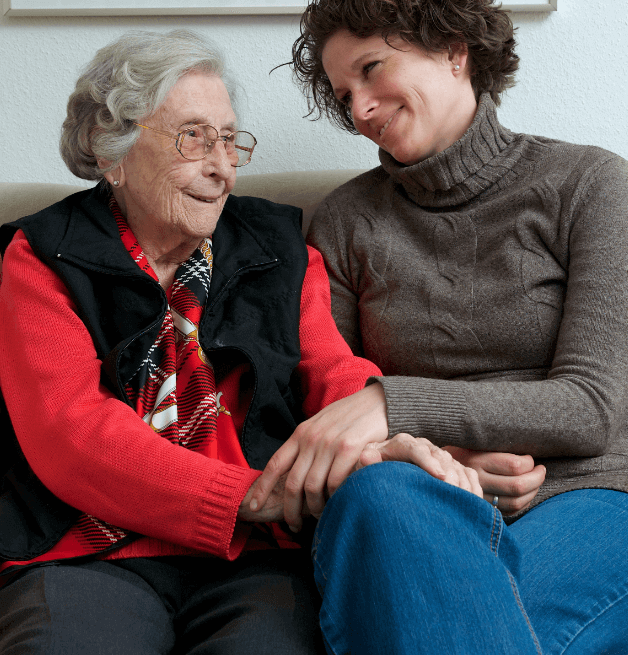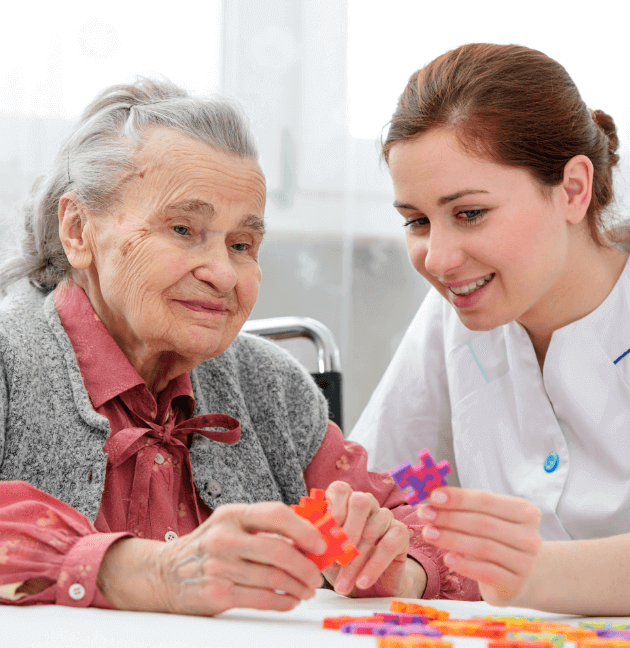ComForCare Home Care Services in New Jersey*
Flexible Scheduling - Personalized Care - Meaningful Activities
*Not all services are available at all locations.
- 24/7 Care
- Bathing & Toileting
- Companionship
- Dementia Care
- Disability Support
- Family Respite
- Grooming & Hygiene
- Light Housekeeping
- Meal Prep
- Medication Reminders
- Personal Care
- Safety Supervision
- Transitions of Care
- Transportation
- Private Duty Nursing
- Veterans Programs
- Alzheimer's Care
- Fall Risk Management
- Medication Administration
- Memory Screening

24/7/365 Patient Centered Care
We Tailor Our Home Care Services to Fit Your Needs
Helping your loved one age in place is a wonderful gift and a decision that will likely come with new responsibilities for the family. At ComForCare, preserving your loved one’s dignity and quality of life is our number one goal. Our caregivers work closely with patients and family members to determine scheduling and care needs. Family members can take as little or as much control over caregiving as desired, with ComForCare caregivers filling in the gaps or taking charge as needed.
Let us give you peace of mind.

Highly Skilled Caregivers
We Match Caregivers to Clients by
Skillset and Personality Type
At ComForCare, our caregivers are the heart of our company. Our 10-step hiring process focuses not only on verifying skill, but also on confirming caregivers are compassionate, kind, and understanding. This helps ensure we hire only the best caregivers, with the competency and empathy required to take care of all of your loved one’s needs. Then, as part of our quality assurance, our nurse will oversee and evaluate the caregiver and care recipient to ensure the best possible situation.
Let us find your perfect caregiver.
101 Rte. 130
Cinnaminson, NJ 08077
354 State St
Hackensack, NJ 07601
4400 U.S. 9
Freehold, NJ 07728
1670 Whitehorse Hamilton Square Road
Hamilton, NJ 08690
45 Broadway
Denville, NJ 07834
61 N Washington Ave
Bergenfield, NJ 07621
92 E. Main St.
Somerville, NJ 08876
9 Davison Ave.
Jamesburg, NJ 08831
1122 Route 22 West
Mountainside, NJ 07092
277 Fairfield Rd.
Fairfield, NJ 07004
101 Hudson St
Jersey City, NJ 07302
45 Broadway
Denville, NJ 07834
Coming Soon
Edison, NJ 08837
Quality of Life Begins
With Quality of Care
ComForCare is known for outstanding client service.
We make it a point to check in with clients frequently regarding
the quality of care and your overall satisfaction with services,
and respond quickly to any specific needs, requests, or issues.
Help Your Loved One Live Their
Best Life Possible
perfect caregiver. For care, please fill out the form below. For employment, please go to careers.
(614) 864-9446













